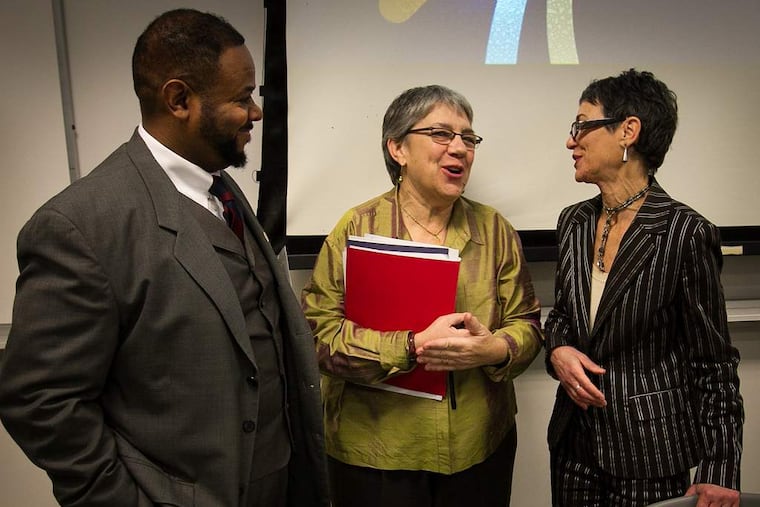First-year report released on city’s plan to combat poverty
Shared Prosperity Philadelphia - the city's plan to tackle its staggeringly deep poverty rate - has made important strides in its first year of existence, but there's no time for celebration yet.

Shared Prosperity Philadelphia - the city's plan to tackle its staggeringly deep poverty rate - has made important strides in its first year of existence, but there's no time for celebration yet.
"The challenge is that we're still a desperately poor city," said Eva Gladstein, executive director of the Mayor's Office of Community Empowerment and Opportunity, which oversees the program. "Poverty effects 397,000 people - 123,000 of whom are children - in Philadelphia."
In Shared Prosperity's first progress report, released today at the Uniting to Fight Poverty Summit at the Community College of Philadelphia, the success of community partnerships, the greater availability of resources for the poor and increased grant funding were heralded as successes.
Shared Prosperity has been less successful at moving towards its goal of adding 25,000 jobs to the local economy by the end of 2015. According to the report, only 3,800 jobs have been added in the city since last year.
Other challenges faced by the program include burdensome federal and state policies, the need to establish more organizations that can provide identification cards to those seeking benefits and increasing the number of banks that offer low-or-no-cost banking, Gladstein said.
For a family of four, the federal poverty line is $24,000 a year. In Philadelphia, 26 percent of the population lives below that line, giving us the terrible distinction of the poorest of the nation's top 10 most populated cities.
"If one quarter of your population is poor, it drags the city down as a whole, it's a weight on the city," Gladstein said. "These are people who need services but they are not able to put money back into the city, they are not able to pay taxes, they are not able to shop at small businesses."
Gladstein said she was bolstered by the fact that within the first two months of Shared Prosperity's July 2013 launch, 200 private and public organizations had contacted her office and asked to partner with the program.
"They were happy to see this subject matter become more visible and to have a way to connect not just with the city, but with each other," she said.
The philanthropic community is actively engaged in the program, Gladstein said, while academics and researchers are coming to the table to study the problems and solutions.
As a result of those partnerships, Shared Prosperity has been able to better position itself to obtain grants and other money for the city, such as getting a two-square mile area of West Philadelphia, where the poverty rate stands at 51 percent, named as one of the nation's first five Promise Zones.
The Promise Zone designation allows the area to get preferential treatment for federal programs.
Two other successes Shared Prosperity lauded in its first report were the establishment of BenePhilly Centers, where people can receive assistance on accessing public benefits, and Financial Empowerment Centers, where citizens can receive financial counseling and education.
Among Shared Prosperity's goals for 2015 are trying to reduce the barriers to public-sector jobs, adding more BenePhilly Centers and looking at new models to help low-income renters.
Though the ultimate goal of Shared Prosperity is to end poverty in the city, there is no timeline on the project.
"We didn't put a timeline on Shared Prosperity because we knew we'd need long-term focus and attention, not to mention resources," Gladstein said. "But, we do hope the strategies will change and evolve over time."
At today's Uniting to Fight Poverty Summit, the keynote speaker is Jodie Levin-Epstein, deputy director of the Center for Law and Social Policy, a Washington, D.C., based organization that works on "policy solutions" for low-income individuals. Attendees will then break up into workshops that focus on Shared Prosperity's five collective strategies: training and job creation, access to public benefits, early learning, housing security and economic security.
"I am really proud of the work we have accomplished with all of our partners," Gladstein said. "But I believe there's much more we can do."
OnlineOn Facebook: ph.ly/crime
BlogOn Facebook: ph.ly/Delco